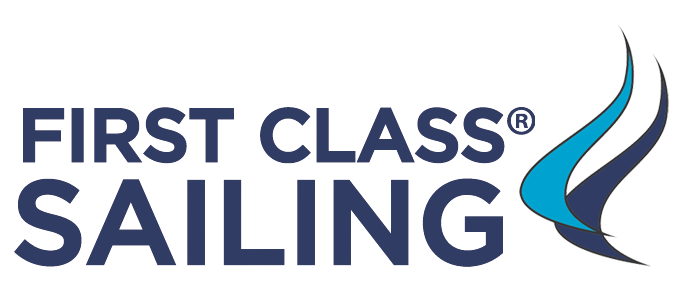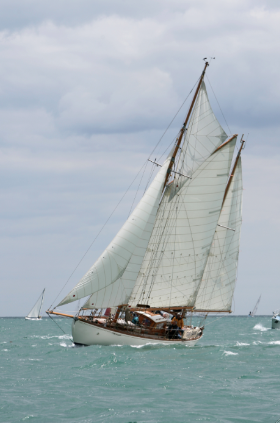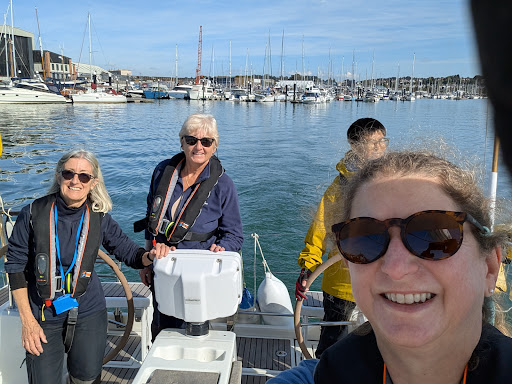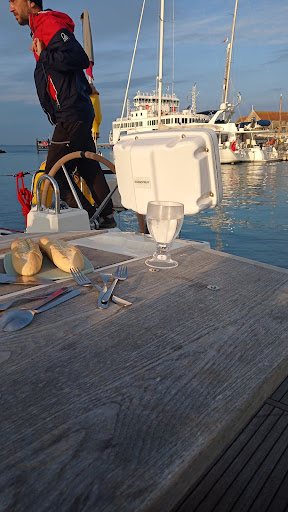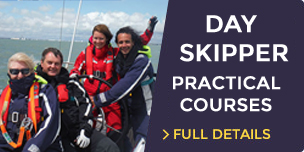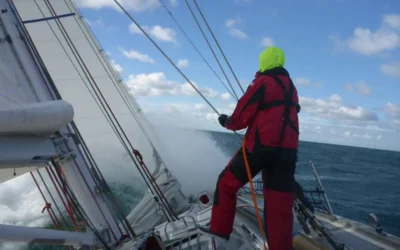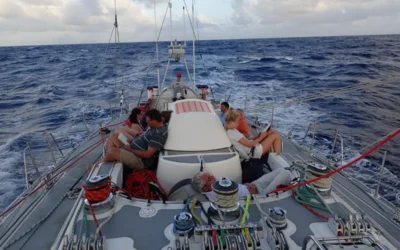Maybird was recently in Derry/Londonderry – City of Culture for 2013. She was there for crew changes and so I took the opportunity to do some maintenance.
I tend to change oil and fuel filters every 200 hours and keep as many spare parts on board as is practical especially spare oil and fuel filters, impellers for the water pump, drive belts for the alternators and pumps to name the most obvious.
Over the winter I removed Maybird’s “posh” primary fuel filter arrangement – an American brand that few people outside the Solent stock – and replaced it with a type used on tractors and other agricultural machinery purely as I could buy the spare filters for it very easily.
Another helpful point is to know what bits of your engine you can access easily and what bits need the arms and legs of a limbo dancer to get at.
In order to change Maybird’s secondary fuel filter I have either to disconnect an oil pump or remove the oil filter first to get access. Another job I did over the winter was to “make” a spanner that allows me to get access to the bottom bolt that keeps the starter motor in place. Without this nifty bit of kit you need telescopic arms to get the starter motor off.
I much prefer sailing to servicing and fiddling with engines, but having learnt the hard way that prevention is often much better than the cure, I know that a good supply of on board spares can save a lot of grief.
by Darryl Hughes
And your question from this point in his voyage…How does a Diesel Engine work?
If you want to learn the skills Darryl has displayed above the best place to start is the Diesel Engine Maintenance Course. It is a one day course for beginners. It assumes no prior experience and is intended to be both enjoyable and informative.
